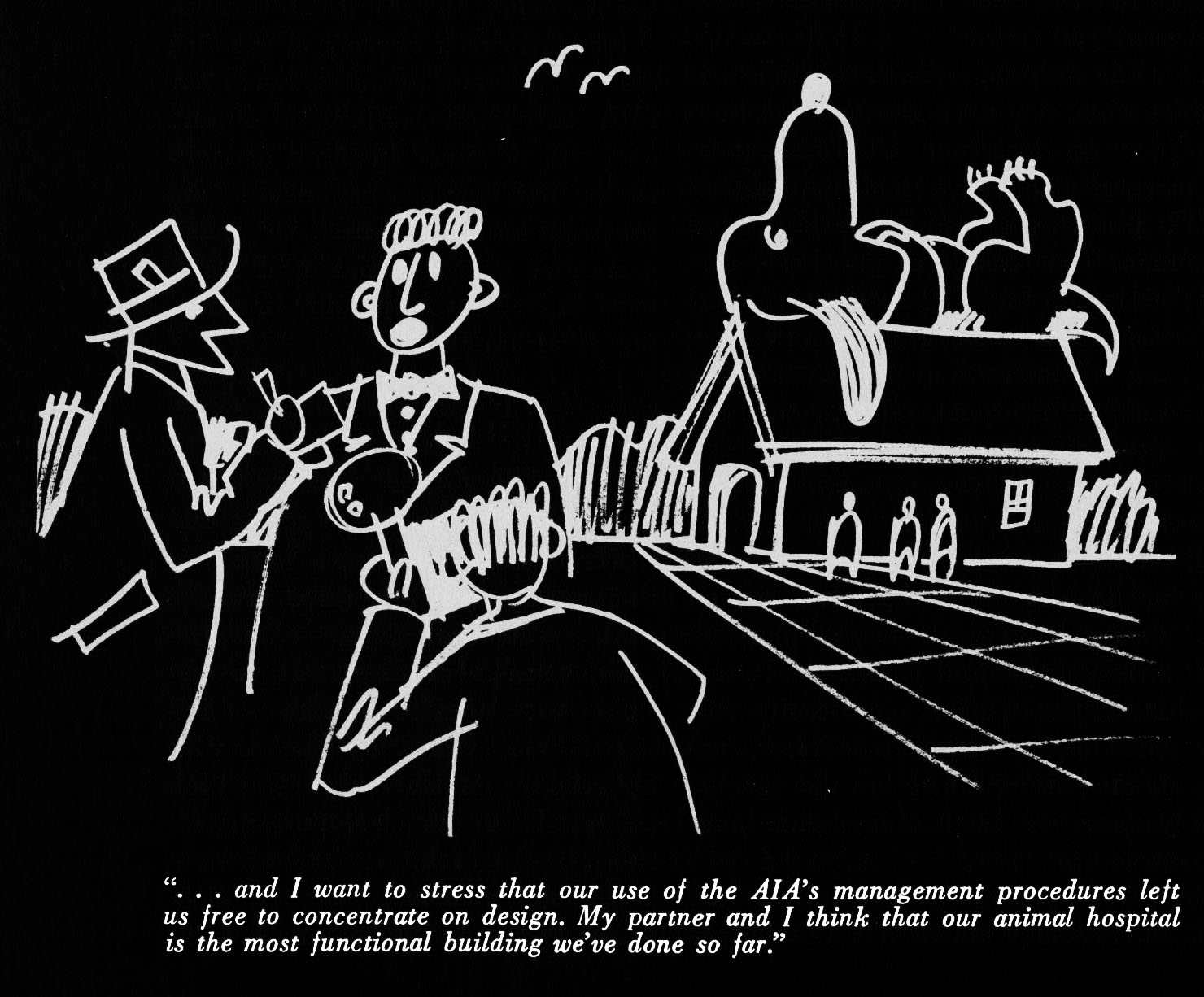International Conference “Standard Architecture”
Standardizing the Business of Building: Management and Marketing in The Architect’s Handbook, 1963-1988
Conference Presentation, October 2018

For many architects, business tools
are just as important as T-squares and keyboards, because the “immaterial labor”
of architectural authorship is as much managerial as it is representational. And
while each office develops routines of its own, these tools have over time been
standardized through instructional materials made available by professional
associations. For US architects, The
Architect’s Handbook of Professional Practice—published and distributed by
the American Institute of Architects (AIA)—has since its appearance in 1920
provided basic instructions for the day-to-day functioning of architecture
firms. The Handbook contains standardized
forms and contracts that serve as the rudimentary business tools of the
architect’s trade, alongside narratives that provide the intellectual
scaffolding to understand that trade. Since its inception, the Handbook has given a semblance of order
to the design and construction process by standardizing the role of architects
within it. Tracing revisions and updates to
the Handbook over 25 years, in this presentation
I analyzed it as a bellwether of standardization in the business of building
design. The cumulative effect was an ideological
redesign of the AIA’s standard of practice, so that it was based less on technical
expertise and more on business acumen. To acclimatize architects to this new
market, the Handbook’s authors hoped
to give architects the tools they needed to efficiently manage larger teams of technicians
and administrators, and to effectively market their services. Revisiting this core
document of US architectural practice, I hypothesize that by standardizing professional
culture, it fostered the aesthetic diversity that characterized US variants of Postmodernism.
Comic by Paul Spreiregen in AIA Journal October 1964 special issue on “Office Practice,” guest edited by the authors of the AIA’s other flagship publication, The Architect’s Handbook.
Comic by Paul Spreiregen in AIA Journal October 1964 special issue on “Office Practice,” guest edited by the authors of the AIA’s other flagship publication, The Architect’s Handbook.